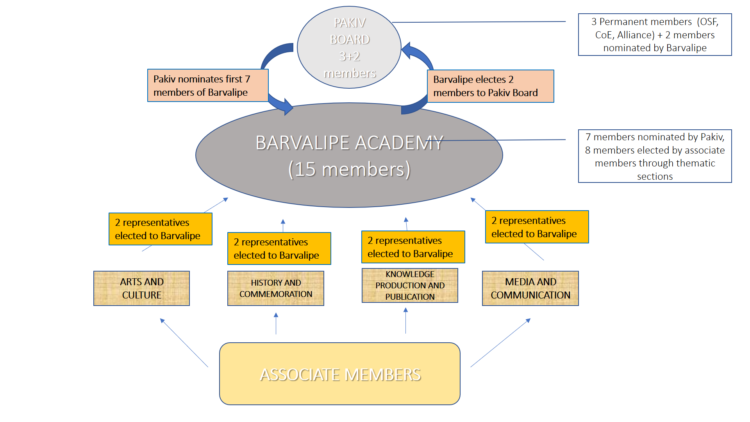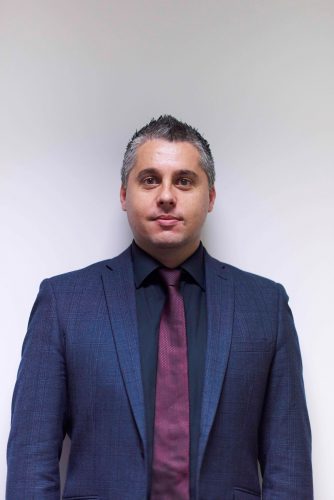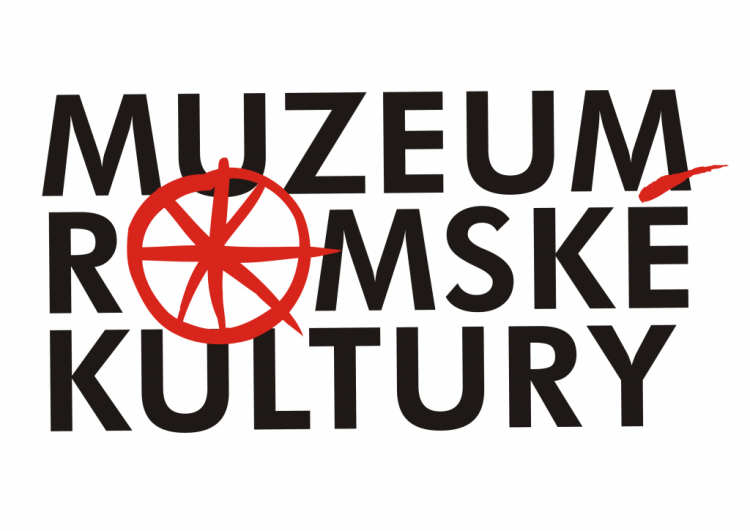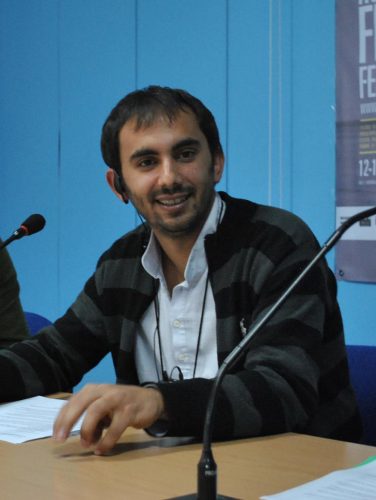43
Barvalipe is composed of 15 members – highly regarded, publicly acknowledged individuals, with competencies in the areas covered by ERIAC activities. Two thirds of the Academy members must openly declare their Romani ethnicity, respecting the diversity among the Romani communities. Gender balance must be ensured.
The first 7 members of the Barvalipe Academy will be nominated by ERIAC’s Board “Pakiv”. The remaining 8 members of the Baravlipe Academy will be elected by the members through the thematic sections. Each section will delegate two representatives to Barvalipe.
Two members of Barvalipe Academy, elected internally, are delegated to the “Pakiv” Board and become a bridge which connects the ERIAC’s associate membership with the Board.
BARVALIPE ACADEMY MEETINGS:
The 1st Barvalipe Academy meeting, February 5th, 2019, Belgrade, Serbia:
Abridged minutes_ERIAC Barvalipe Academy 1st Meeting_Feburary 5 2019
The 2nd Barvalipe Academy meeting, December 9th, 2019, Berlin, Germany:
Barvalipe Academy 2nd Meeting_Abridged minutes_09122019
The 3rd Barvalipe Academy meeting, November 16, 2020, Online:
ERIAC_3rd Barvalipe Academy meeting_November 16 2020_AGENDA_minutes
The 4th Barvalipe Academy meeting, December 14, 2020, Online:
ERIAC_4th Barvalipe Academy meeting_December 14 2020_AGENDA_minutes
The 5th Barvalipe Academy meeting, September 24, 2021, Online:
ERIAC_V Barvalipe Academy meeting_24 September 2021_minutes
ERIAC VI Barvalipe Academy meeting report November 24, 2021, Online
ERIAC VII Barvalipe Academy meeting report January 26, 2022, Online
ERIAC VIII Barvalipe Academy meeting report December 2, 2022, Online

About 25 years ago an unusual pianist coming from a family with a long standing flamenco tradition burst onto the scene. DORANTES (nephew of El Lebrijano, grandson of a highly valued cantaora known as La Perrata) was born in Lebrija (Andalusia, Spain) in 1969 and retains the frankness of someone who is proud of his origins: one of the most important Gitano lineages in Flamenco (the Pena-Perrate-Pinni-Bacân].He started with the guitar, became a regular at flamenco festivals as a guitarist and one day, by Chance, a piano changed his destiny. He enrolled in the Music Conservatory of Seville and in soon his talent began to stand out. At the moment, he indubitably represents one of the most outstanding and innovative contributions to the Spanish musical scene. Dorantes is not only a virtuoso instrumentalist who has turned the piano into a soloist and a reinvigorating element in Andalusian flamenco, he is also a brilliant orchestral composer. His creative force has unleashed a genuine revolution in flamenco music. Dorantes is opening new and coherent paths for this heritage and, in his unstoppable advance, he is bringing it closer to the status of “classical or cultivated music”. All Jiot this while staying adamantly coherent with his roots. Jose Luis Navarro, flamenco professor and
historian, states: “Dorantes is doing with the piano, in leaps and bounds, what Paco de Lucia did with the guitar”. The journalist Mirien Landeta adds “Dorantes is a remembrance of flamenco that looks to the future. He is harmony and rupture. He is technique and sheer virtuosity combined with passion and feeling. He is, like his piano, black and white. Ivory and flesh. Man and music.
Dr. Delia Mandalina Grigore is a Rromani woman born 1972 in Galaţi, Romania. She holds a Ph.D. in visual arts, with a specialization ethnography-ethnology from the Romanian Academy, Institute of Ethnography and Folklore in 2004. She is a senior reader at the University of Bucharest, Faculty of Foreign Languages and Literatures, Rromani Language and Literature Section and the President of the Roma Center “Amare Rromentza”. She works in education, Rromology research (e.g. ethnography, ethnology, ethnolinguistics, folklore, oral history, and literature) and Rromani culture fields. She is the author of several works, including Introduction in the Study of Traditional Culture Elements of the Contemporary Rromani Identity (2001, University of Bucharest – CREDIS, Bucharest) and Rromanipen – Keystones of Rromani Culture (2011, Amare Rromentza, Bucharest). She is a team member for the presentation of Rromani Literature in Romania for RomArchive.
Professor Dr. Ethel Brooks is an Associate Professor in the Departments of Women’s and Gender Studies and Sociology at Rutgers University, New Jersey. She has conducted research on an host of sites around the world including London, Istanbul, Fall River, San Salvador, Dhaka and York City. Professor Brooks is currently working on two book projects: “Disrupting the Nation: Land Tenure, Productivity and the Possibilities of a Romani Post-Coloniality”, and “(Mis)Recognitions and (Un)Acknowledgements: Visualities, Productivities and the Contours of Romani Feminism”, both of which focus on political economy and cultural production and the increasing violence against Romani (Gypsy) citizens worldwide.
In 2011 Professor Brooks was awarded a prestigious Fulbright-University of the Arts London Distinguished Chair Award and she spent the academic year 2011/2012 at TrAIN – the Research Centre for Transnational Art, Identity and Nation. Part of the award supported Professor Brooks’ delivery of a lecture series in conjunction with the Tate Gallery, London.
Brooks serves as a member of numerous boards and commissions, including the USC Shoah Foundation VHA External Advisory Committee, the RomArchive, the European Roma Rights Centre, and the Rutgers Center for Historical Analysis. She is a member of the US Delegation to the International Holocaust Remembrance Alliance and its Roma Genocide Working Group.
In 2016, she was appointed by President Obama to the U.S. Holocaust Memorial Council.

Kyuchukov is a Professor of Romani language and Intercultural education at the University of Silesia, Katowice, Poland. He has a Ph. D in Psycholinguistics from the University of Amsterdam and two other Ph. D.-s in Education from Bulgaria. Also, he has more than 800 publications in the field of Romani language, minority languages, education of Roma children in Europe, and Roma culture. I have been teaching as a guest professor or as a full-time professor in USA, India, Turkey, Russia, and in almost all European Universities.

Isaac Blake was born in Bromsgrove and grew up on Gypsy and Traveller sites in Wales and England. He studied and trained dance theatre at the LABAN Dance Centre (now the Trinity LABAN Conservatoire of Music & Dance in London). He went on to study at the Martha Graham School in New York, before working in Montreal, Canada and returning to Wales where he was choreographer for performances at the Wales Millennium Centre, Riverside Arts Centre (Newport) and the Royal Welsh College of Music & Drama. He continues to teach a popular movement and dance course at the RWCM&D (2009 to the present).
He is a proud Gay Romany Gypsy and is currently Executive Director of the Romani Cultural & Arts Company in Cardiff, UK, an organisation funded by a variety of major donors, government departments and UK charities (such as the National Lottery Community Fund, Arts Council of Wales, Welsh Government).
As Executive Director at the Romani Cultural & Arts Company (RCAC), Isaac has developed arts and performance programmes with communities on Gypsy and Traveller caravan sites, involving young children and adults, worked in schools, colleges, and preschools. Romani Cultural & Arts Company has promoted arts and culture as a medium for empowerment and advocacy throughout Wales with Gypsy, Roma and Travellers. He has engaged widely with non- Gypsy communities to promote dialogue and social cohesion. His leadership and management of the RCAC has seen the organisation grow from a small voluntary group to a major third sector (NGO) agency that leads the Romani and Traveller field in Wales, and is one of the major players in Romani and Traveller advocacy, autonomy and self–determination in the UK.
Isaac has also been a Dance Curator, leading a team of academics and researchers in collating items and artefacts for the highly-regarded RomArchive’s Dance Section (https://romarchive.eu). His leadership of the Section ensured the delivery of the project from a diversity of Romani voices, from differing countries.
Isaac has been instrumental in supporting LGBTQI Gypsy, Roma, Traveller rights in UK, Europe and beyond. Isaac has supported LGBTQI Gypsy, Roma, and Travellers individuals to attend international events, and Isaac has personally attended such events as advocate and representative of his community, positively promoting LGBTQI recognition and respect. Recently, Isaac co-ordinated and produced the first international LGBTQI GRT spoken history archive, whilst publishing a linked e-book to complement the online archive (see https://romaniarts.co.uk).
He continues to study complementary therapies and well-being approaches as a professional and practitioner, combining with he traditional Romani practice of divination in new and innovative ways.
Dr. Iulius Rostas is a Visiting Professor at the Romani Studies Program. Between August 2016 and July 2019, he served as Chair of Romani Studies/Assistant Professor at Central European University in Budapest. He was an Affiliated Fellow with the Institute for Advanced Studies at CEU, Senior Fellow with the Open Society Foundations Roma Initiatives Office and Visiting Lecturer at the Corvinus University of Budapest. He has worked for the Open Society Foundations, the European Roma Rights Center and the Government of Romania and consulted the Organisation for Security and Cooperation in Europe, the World Bank, the European Commission, and the Roma Education Fund. Dr. Rostas published “A Task for Sisyphus: Why Europe’s Roma Policies Fail” (CEU Press 2019) and is the editor of “Ten Years After – A History of Roma School Desegregation in Central and Eastern Europe” (CEU Press, 2012). In 2011 he published “Social Inclusion or Exclusion: the Rights of Persons Living with HIV in Moldova” (Cartier Publishing, 2011). He has published articles and book chapters on Roma participation, Romani identity, Roma school desegregation, Romani movement, and civil society.

The Museum of Roma Culture in Brno was established in 1991, their first permanent exhibit was opened on 01 December 2005. The Museum also offers a space for research and community gatherings. The MRC holds a unique position in the world, due to its long existence and collection and documentation work and is a strong partner of ERIAC. Owing to the experience and the team of experts available at the Museum, a cooperation between the MRC and ERIAC will be beneficial and enriching.
Dr. Maria Bogdan received her PhD from the Film, Media and Culture Theory Doctoral Program at the Eötvös Loránd University in Budapest in 2018. She wrote her thesis about the media representation of the Roma in Hungary, and developed a multidisciplinary theoretical approach based on cultural studies for analyzing and understanding the position of Roma in the Hungarian society. Her main research interest is related to media representation, the modern forms of racism, and the questions of diversity. She has published numerous articles in English and in Hungarian related to these topics in international and Hungarian journals.
Dr. Bogdan was a visiting researcher at CEU Romani Studies Program in 2018, and prior to that position, she was a researcher at the Hungarian Academy of Sciences (2014-2017) and an assistant lecturer at the University of Pécs (2006-2013). She is also a Fulbright Alumna and completed part of her PhD research at Columbia University in New York. She has also studied journalism and film and has worked as a journalist at different media organizations in Hungary. Dr. Bogdan is one of the founding editors of Critical Romani Studies journal and is a member of the ERCF Board which runs Gallery8 – the first Roma contemporary art space in Hungary.
Miguel Ángel Vargas (born 1978, Spain) is a stage director, poet, actor, and researcher. In his work, inspired by the poetics of the old, he uses material and aesthetic elements of the past to influence contemporary contexts; from his point of view, nothing – material or not – dies free of life and of a certain magical influence, especially in the universe of Theater. He earned his degree in Art History from the University of Seville, studied Stage Direction in the the Instituto del Teatro de Sevilla, and currently researching the representation of Roma theater artists on stage (Sevilla and Cádiz, 1746-1845), while also collaborating with international organizations like ERIAC or Central European University for the Roma emancipation through culture and art. Miguel has performed as a theater actor on several stages across Europe; starting in 2001 with Teatro del Velador and Teatro del Duende (Spain), Newcastle Northern Stage (London), and the historic Roma Theater Pralipe (Germany). As well as occupying different positions in the field of being an opera technician at the Teatro Maestranza, a technical director of the Teatro Quintero, and a TV stage manager for the television program Ratones Coloraos in Canal Sur TV. During 2010, he was the production manager of the show Flamenco Hoy, by international filmmaker Carlos Saura. In 2012, he was awarded Young Creators Award by the Instituto de Cultura Gitana of the Ministry of Culture of Spain.
Mihaela Zatreanu is probably one of the best Romani language teaching experts among the Roma with a broad outlook at the Romani language field. A graduate of the Pedagogical High School and Foreign Language Faculty in Bucharest, Mihaela has worked in Roma education for the past 15 years, first as a primary school teacher, then as a trainer for Roma and non-Roma educators, and educational inspector at the Ministry of Education. Mihaela Zatreanu has been developing the first curriculum for Romani language in Romania and continued her activity authoring of textbooks, publishing a series of textbooks for Romani language. During 5 years as an educational inspector in the Ministry of Education and Research, she contributed to the designing of the legislative policies for increasing the school participation of Roma, has been monitoring and guiding local programs for supplementary school assistance, and introduced the school mediator for the first time in Romania. Mihaela Zatreanu had an important role in introducing Romani language and history in state schools at national level and for the allocation of special places for Roma students at high school and university level. At the European level Mihaela Zatreanu has been working in cooperation with the Council of Europe as a Chief Executive Officer at the European Roma and Travellers Forum. She was acting several years as the educational expert for the Council of Europe, contributing to the development of the policy paper for the education of Roma children in Europe, developing the Guide for Roma school mediators, teaching materials for preschool education and the Curriculum Framework for Romania Language together with a group of European experts. She has been CoE trainer for school mediation and the National Program Officer of ROMACT program in Romania.
Nedjo Osman was born in Skopje/Macedonia, in the former Yugoslavia. Osman began his acting career at the Roma theater Pralipe in Skopje. After graduating from the Film and Theater Academy in Novi Sad, he worked as a theater actor at the National Theater KPGT in Subotica and made guest appearances on the stage of the Serbian National Theaters in Novi Sad and JDP Belgrade.
After the outbreak of the war in the Balkans, he came to Germany as a member of the ensemble of the Pralipe Theater at the Theater Mülheim an der Ruhr, where his leading role received outstanding reviews in magazines and newspapers such as Theater Heute, Frankfurter Allgemeine, Frankfurter Rundschau, Süddeutsche Zeitung etc. He took leading roles in many productions from classical to modern for which he received numerous awards.
Osman has performed at various international festivals in Europe, awarded with best critiques as well as numerous awards: the Golden Laurel Wreath at the International Theater Festival MESS Sarajevo in 1991 and for the leading role of Sebastian in the play “Anita Berber” at the Theater Festival in Vojvodina in 1997. In 2003, for the first time, the Yul Brynner Prize was awarded in Berlin and Nedjo Osman was awarded for directing the play “Medea” as well as in his capacity as a Roma actor. In Zagreb in 2017, he received the “Šaip Jusuf” lifetime achievement award. The prize is awarded for the contribution to the development of the Roma community in the field of culture, art and education.
In 1996, after leaving Pralipe Theater, he was a guest actor in many German city theaters such as Cologne, Düsseldorf, Frankfurt, Saarbrücken and many others.
Since 1996 he has been a freelance actor and director and together with Nada Kokotovic acts as the artistic director of the Theater TKO / Choreodrama – Romano Theater in Cologne.
As a journalist, he directed and moderated programs in Romanes at Radio Multi-Kulti in Berlin from 2000 to 2002 and at Deutsche Welle in Bonn from 2002 to 2014.
As a translator into Romanes and as a poet, Nedjo Osman has discovered his passion for writing at an early age. His inspiration is the street, Roma inhabited neighborhoods, experiences with non-Roma and love as a source of beauty. His poems have been published in Serbia, Turkey, Macedonia, Croatia and Germany.
As a long-standing translator of Roma culture, Osman has also acted as a social worker and mediator in various Roma projects in Cologne and many other German cities.
For years Osman has been trying to awaken Roma interest in art as one of the most important elements of Roma culture and identity. He has been working continuously to promote Roma culture and Roma theater among non-Roma in order to change their minds and change the image of Roma.
Romani Rose (born 1946 at Heidelberg, Germany) is a Romani activist who lost 13 relatives in the Holocaust of the Nazi purges against the Romani people and Jews and is the head of the Central Council of German Sinti and Roma. During the founding of the Central Council in 1982 he was voted to the position of Chairman by the delegates of the member organisations – then 9, now 16 state and regional associations – and since then has been confirmed in his post every four years at the member meetings. From 1991, Rose took over the management of the Documentation and Culture Centre of German Sinti and Roma in Heidelberg. For years he has been known by the federal and state governments for his resoluteness and for his persistent and unyielding work.
Together with the Chairpersons of the National Minorities in Germany, Rose leads the Minority Council, which was founded on September 9, 2004. It is the union of the umbrella organisations of the four national minorities which belong to the German nation and have always been resident and autochthonous here. For three decades –since June 1979 to be exact – he has led the work for the civil rights of German Sinti and Roma before the eyes of the German as well as the international public; he has also fought for their protection from racism and discrimination, for compensation for the survivors of the Holocaust – at the same time announcing the magnitude and the historical importance of the genocide of 500,000 Sinti and Roma in National Socialist occupied Europe. In May 1995, in cooperation with the member organisations of the Central Council, Rose achieved recognition for German Sinti and Roma as a national minority in Germany with their own minority language, connected with their goal of equal participation in social and political life.

Sami Mustafa was born in Plemetina, Kosovo in 1984, and in 2011 moved to Lyon, France. He is an independent documentary director and producer, who in 2007 became one of the founders of Romawood production company. He initiated the Jekh Kham Jekh Sel (One Sun One Nation) project in 2007 and the well-known Rolling Film Festival, which has been running since 2009. He is a member of the International Romani Film Commission, the body responsible for fostering Roma cinema and filmmakers. Moreover, in his role as a film tutor he gives young Romani people the opportunity to learn how to express their lives, experiences and identities through artistic methods, and thus to produce documentary films. He is known for his first feature-length film, “Trapped by Law” (Kosovo/Germany), released in 2015. It tells the story of two Romani rap brothers from Essen in Germany who are deported to Kosovo.

Santino Spinelli aka Alexian is an Italian Roma living in Lanciano (Chieti) in Abruzzo. He is a musician, composer, University professor, poet, writer and essayist. He has two degrees, one in Modern Foreign Languages and Literatures and the other in Musicology, both from the University of Bologna. With his group, the Alexian Group, he holds numerous romani music concerts in Italy and abroad. Founder and president of Thèm Romanò cultural association (Roma world) recognized in the Forum called by the UNAR-Presidency of the Council of Ministers at Palazzo Chigi. He is the representative for Italy, at the Parliament of the International Romani Union (IRU) and for the same organization he is Ambassador of Romani Art and Culture in the world, it is a non-governmental organization active in the field of the rights of the Romani population, which consultative status at ECOSOC has been granted to the United Nations. He is one of the founders of UCRI (Union of Romanès Communities in Italy) of which he is spokesperson. He was elected a member of the Barvalipen Academy of the ERIAC in Berlin, an institute that deals with Romani art and culture established by the Council of Europe.
He is the representative of Italy in the European platform of the Roma and Sinti inclusion strategy established and promoted by the European Union and the Council of Europe and managed in Italy by UNAR. He was appointed Commendatore of the Order of Merit of the Italian Republic by President Sergio Mattarella, by virtue of his tireless work, exemplified not only in academic, institutional and social activities but in his own life as an established artist. He is an honorary citizen of Laterza (Taranto).
One of his poems, Auschwitz, adorns the Roma Memorial in Berlin which he inaugurated together with Chancellor Angela Merkel.
He founded the European Peace Orchestra with which he holds ethno-symphonic concerts, elevating Roma music from folklore to symphony. He actively collaborates with the prestigious Gioacchino Rossini Symphony Orchestra of Pesaro. He collaborates with Enrico Fink and the Multiethnic Orchestra of Arezzo for the artistic project Romanò Simchà, the Jewish-Roma party.
Tony Gatlif is an acclaimed French film director, screenwriter, composer, actor, and producer of Romani ethnicity. He was born in Algeria in 1948 and came to France in 1960. Starting in 1981, he has tackled the theme he now explores from film to film: Romani people from all over the world, seduced by this “community in movement” and “of great richness and diversity.” He is best known for his films dealing inspired by Romani arts and culture, including “Latcho Drom” (1993), “Gadjo Dilo” (1997), “Vengo” (2000), “Transylvania” (2006) and “Korkoro” (2009). His 2004 film “Exils” won the Best Director Award at the 2004 Cannes Film Festival. He was made a Chevalier de la Légion d’Honneur on 30 March 2015.